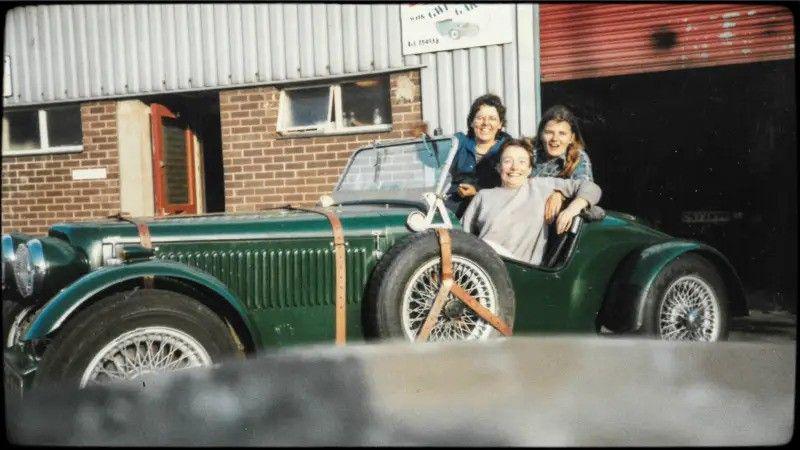'Life as a lesbian in 1980s Sheffield was hard - musical tells that story'
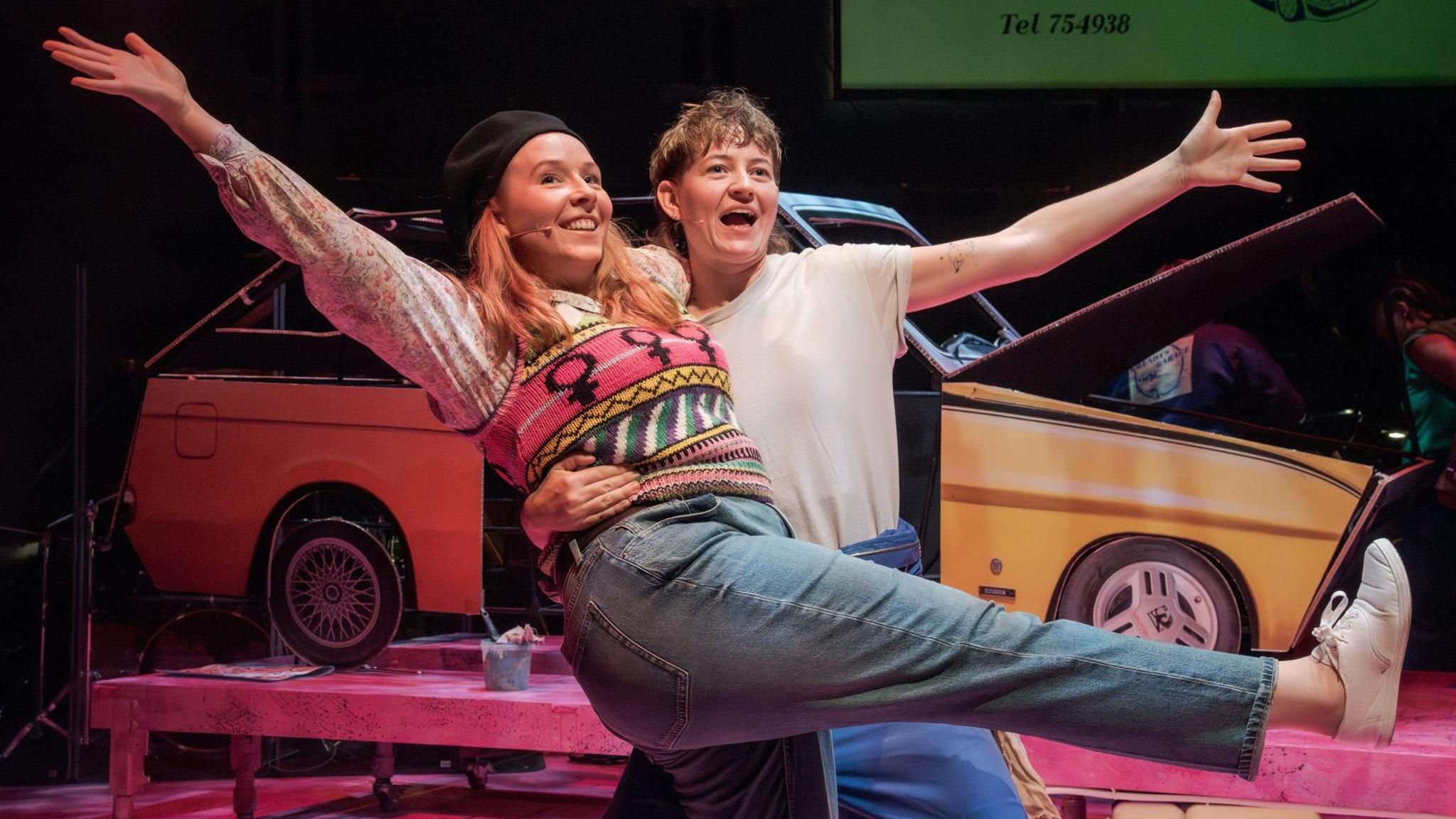
The musical is inspired by the real women who set up an all-female garage in Sheffield in the 1980s
- Published
The hair was big, the shoulder pads were even bigger. But not everything in the 1980s was booming.
In Sheffield, the pits were closing, unemployment was high and being a lesbian car mechanic had its own challenges.
"If you look back at the 1980s, which was a pretty miserable time in many ways, out of that there was a lot of action and Sheffield was very much at the centre of it," says Jelena Budimir, the director of new musical Gwenda's Garage.
Written by queer feminist theatre company Out of the Archive, the show is having its first fully staged run at Sheffield's Tanya Moiseiwitsch Playhouse this week.
The script is by Nicky Hallett and music by Val Regan, who, inspired by the stories of the women who worked in the real Gwenda's Garage (named after pioneering racing driver Gwenda Stewart), have written a fictional story based around the themes of sexism, industrial decline, homophobia and Section 28.
This year is 20 years since Section 28 was repealed. The law stated local authorities in England, Scotland and Wales "shall not intentionally promote homosexuality or publish material with the intention of promoting homosexuality", and was introduced in 1988.
Gwenda's Garage is about how that law affected the families of the three female mechanics who set up business in a small industrial unit in Sheffield.
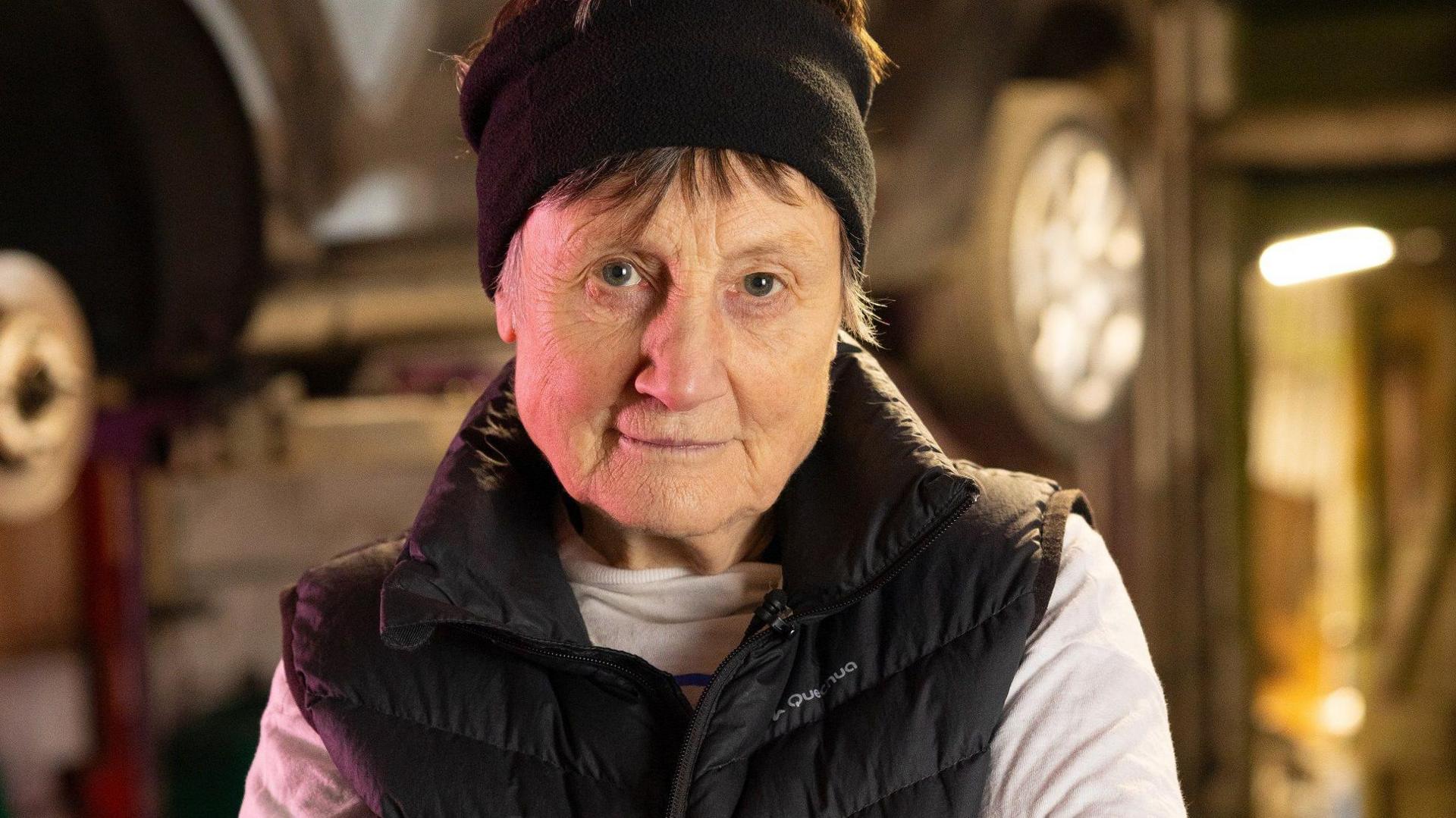
Ros Wollen is the only original member of Gwenda's Garage still alive
"I've been intrigued by Gwenda's Garage for years," says Ms Hallett.
"The opportunity came up in an everyday heritage grant that we got from Historic England in 2023, celebrating working lives and places, and that gave us the opportunity to do the research and the writing, and to have a script-in-hand performance in 2023 in Sheffield's Playhouse."
At first they advertised the show as a rehearsed reading, but soon it had a six-piece band and costumes and not long after it sold out.
"In three days we put it on its feet," says Ms Budimir.
"We just had two performances and it had an amazing reception, which was a bit of a shock."
It received standing ovations and picked up hundreds of fans, including West Yorkshire Mayor and former actor Tracy Brabin.
Two years later it is back in a fully staged production with a live band, costumes and set.
"This had to be a musical - it's celebratory and that's the key to it," says Ms Hallett.
"It's uplifting in lots of ways, as well as thoughtful, but we wanted it to give that message of celebrating the women who were involved with it, but also to mark the period and how uplifting collective action is."
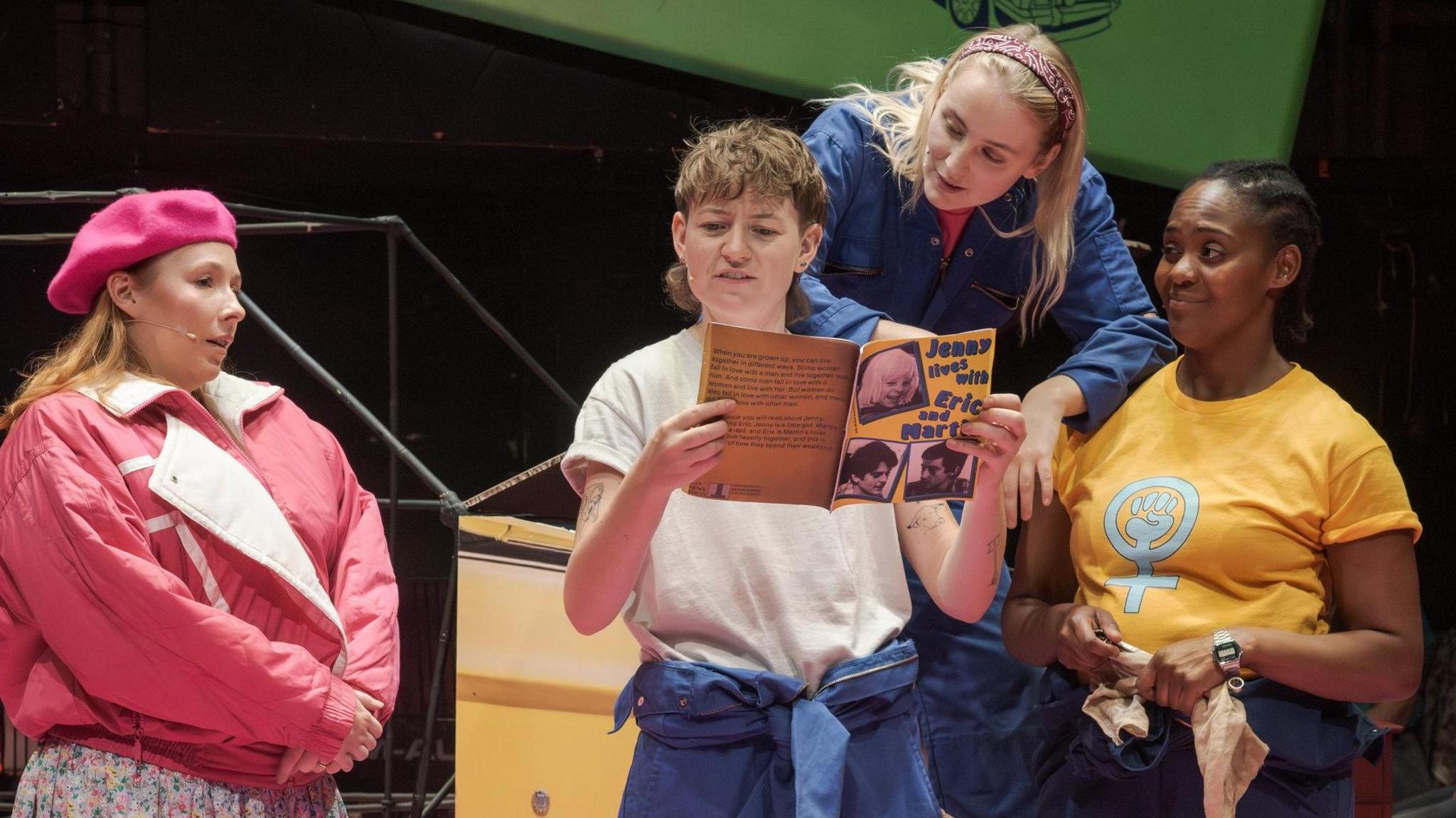
The musical confronts issues such as feminism, family and homophobia
The show is both "a real place and an imaginary place" says Ms Hallett. Having been inspired by the true stories of Ros Wollen, Ros Wall and Annette Williams who founded Gwenda's Garage, it also weaves in the stories of the writers, performers, their friends and families.
"We met with lots of women who were involved with feminist campaigns through the city and that became the focus of our story. It's really about their feminist activism and how they were involved," she says.
"The three words that came out of it were: fun, friendship and feminism - to which we add family because as we know all families are in different shapes and sizes.
"These were very real lesbian families and that's at the heart of our script and storytelling.
"We decided to take the idea of those characters and because of the sensitivities of writing about real people, it's become an amalgam of all the stories, not just from Sheffield but people who are involved in those movements."
The only surviving original member of Gwenda's Garage is Ros Wollen, who has been involved in the musical from the outset - something that felt important to the writing team.
"It was kind of scary for her, because she didn't know what it was going to be," says Ms Budimir.
"We kept saying it's not biographical as such. But it was also very scary for Nicky and Val, because they knew Ros and they wanted her to enjoy it."
Ms Hallett adds: "The whole team wanted to do justice to the stories. It's a huge responsibility.
"People entrust you with their stories, you want to get it right."
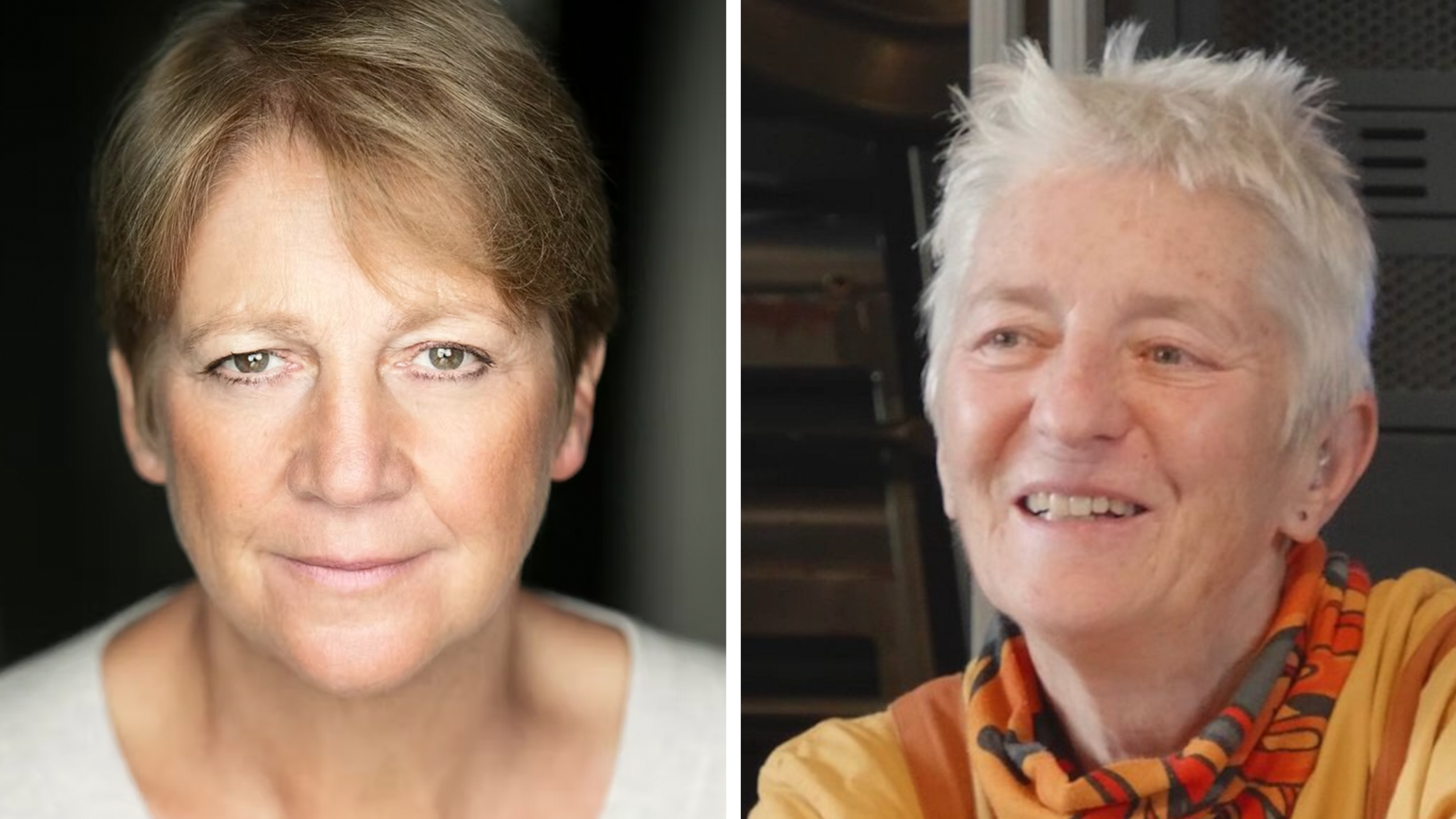
Jelena Budimir (left) and Nicky Hallett (right) created the show as part of the company Out of the Archive
Sheffield Theatres is something of a success story when it comes to musicals.
The theatre was behind Everybody's Talking About Jamie, which has run on the West End since 2018 and was turned into a film starring Sarah Lancashire; as well as Standing at the Sky's Edge, which played at the National Theatre and featured songs from local musician Richard Hawley.
The team are well aware of the historic successes and "ambitious" for the show's future - but they also just want as many people as possible to see it.
"We've had a lot of people say to us afterwards, 'I've never seen my story told on a stage before. We don't hear the word lesbian in theatre, and this is the first time I've ever seen that on stage'," says Ms Hallett.
"I feel the show's got legs. I would like to see it go on elsewhere," adds Ms Budimir.
"We haven't had any conversations about that because it's slightly scary. We had such a success with those two script-in-hand performances.
"I have worked in theatre all my life now really and I love things that educate and move people, make them think and entertain them and I'm very lucky to be working on this project because it does all those things."
Get in touch
Tell us which stories we should cover in Yorkshire
Listen to highlights from South Yorkshire on BBC Sounds, catch up with the latest episode of Look North
Related topics
Related stories
- Published12 March
